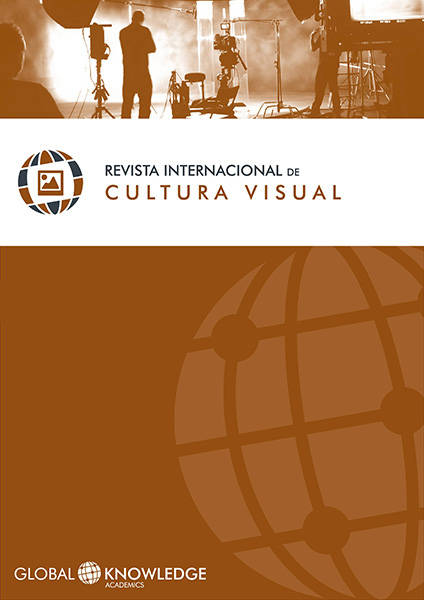Is Brazil Found Here? The construction of possible worlds through of the Brazil brand by young Catalans
DOI:
https://doi.org/10.37467/gka-revvisual.v6.1555Keywords:
Place brand, Advertising, Discourse analysis, Focus GruoAbstract
This article analyzes the sense production that a group of young Catalans came up with after seeing some advertising pieces about Brazil’s self-promotion campaign (2011-2014) abroad and after some posters’ presentations about the advertising campaign “Brazil. The world is here”. Discourse Analysis and focus groups were used as a technique to analyze and to collect the interviews. The results show us that the binomial similarity / difference - essential for a brand positioning construction - is practically non-existent in those campaigns, which causes a homogenization of them in several countries.
Downloads
Global Statistics ℹ️
|
573
Views
|
175
Downloads
|
|
748
Total
|
|
References
Augé, M. (2002). Não-lugares. Introdução a uma antropologia da supermodernidade. São Paulo:
Papirus/Travessia do Século.
Bakhtin, M. (2002). Marxismo e Filosofia da Linguagem. Trad. de Michel Lahud e Yara Frateschi Vieira, 10 ed. São Paulo: Hucitec, 196p.
Barthes, R. (1990). A retórica da imagem, In: O óbvio e o obtuso. Rio de Janeiro: Nova Fronteira.
Certeau, M. (2011). A cultura no plural. 7ª ed. São Paulo: Papirus.
Dijk, V. (1997). Cognição, discurso e interação. 4 ed. São Paulo: contexto.
Fairclough, N. (2001). Discurso e mudança social. Brasília: Editora Universidade de Brasília.
Giddens, A. (1991). As Consequências da Modernidade. Editora Unesp. São Paulo.
Goodman, N. (1978). “Palabras, Trabajos, Mundos”. En: Maneras de hacer mundos. Madrid: La balsa
de Medusa.
Goffman, E. (1991). Les cadres de l’expérience. [1974] Paris: Les Éditions de Minuit.
Hall, S. (2003). A identidade cultural na pós-modernidade. 7ª ed. Rio de Janeiro: DP&A.
Jensen, K. (2002). A handbook of media and communication research: Qualitative and quantitative
methodologies. Londres: Routledge.
Kotler, P. (2006). Marketing de lugares. Como conquistar crescimento de longo prazo na América Latina e no Caribe. São Paulo: Prentice Hall.
Lipovetsky, G. (2007). A felicidade paradoxal. Ensaios sobre a sociedade de hiperconsumo. São
Paulo Companhia das Letras.
Maingueneau, D. (2001). Análise de textos de comunicação. São Paulo: Cortez.
Martins, I.; Sampaio, A. (2016). Análisis discursivo de los carteles publicitários de las campañas de promoción turística de Brasil y España (2013-2014). Taller Servicio 24 horas. Año 12 (23BIS), MZO - AGO 2016/P. 5-20.
Semprini, A. (2010). A marca pós-moderna. Poder e Fragilidade da Marca na Sociedade Contemporânea. São Paulo: Estação das Letras.
Downloads
Published
How to Cite
Issue
Section
License
Those authors who publish in this journal accept the following terms:
-
Authors retain copyright.
-
Authors transfer to the journal the right of first publication. The journal also owns the publishing rights.
-
All published contents are governed by an Attribution-NoDerivatives 4.0 International License.
Access the informative version and legal text of the license. By virtue of this, third parties are allowed to use what is published as long as they mention the authorship of the work and the first publication in this journal. If you transform the material, you may not distribute the modified work. -
Authors may make other independent and additional contractual arrangements for non-exclusive distribution of the version of the article published in this journal (e.g., inclusion in an institutional repository or publication in a book) as long as they clearly indicate that the work was first published in this journal.
- Authors are allowed and recommended to publish their work on the Internet (for example on institutional and personal websites), following the publication of, and referencing the journal, as this could lead to constructive exchanges and a more extensive and quick circulation of published works (see The Effect of Open Access).














